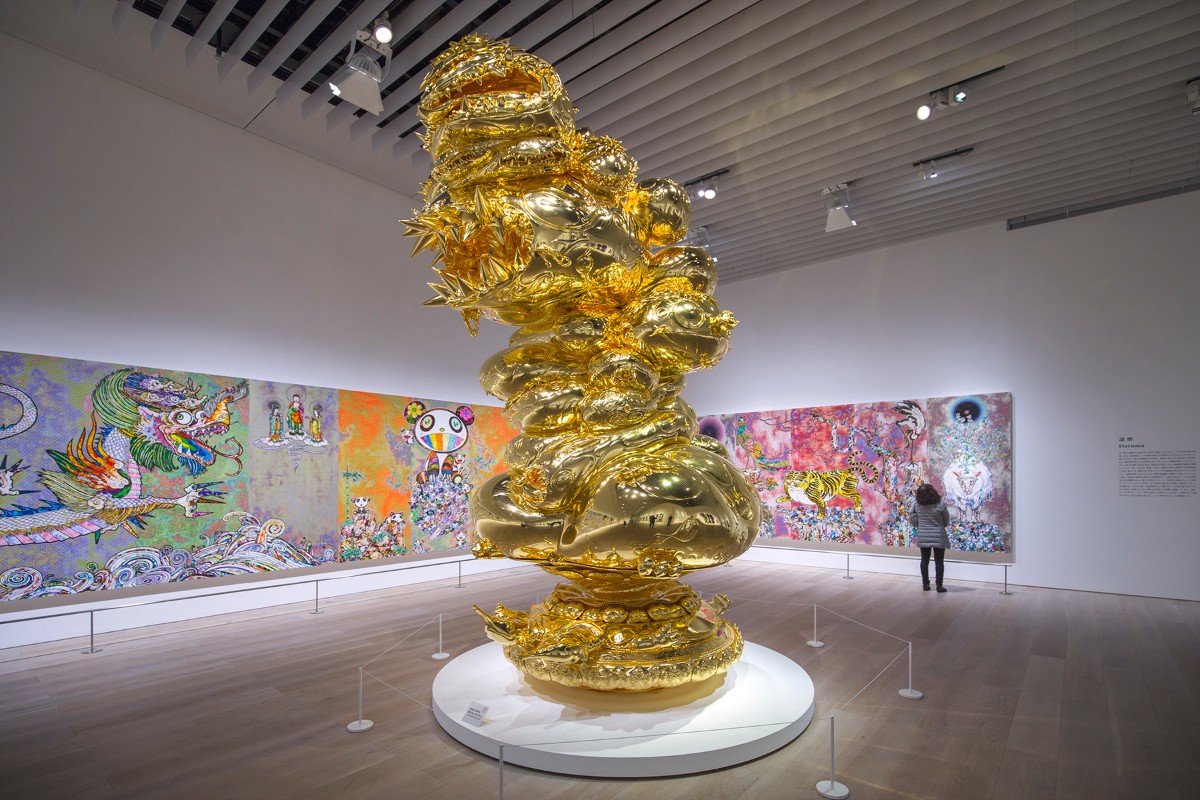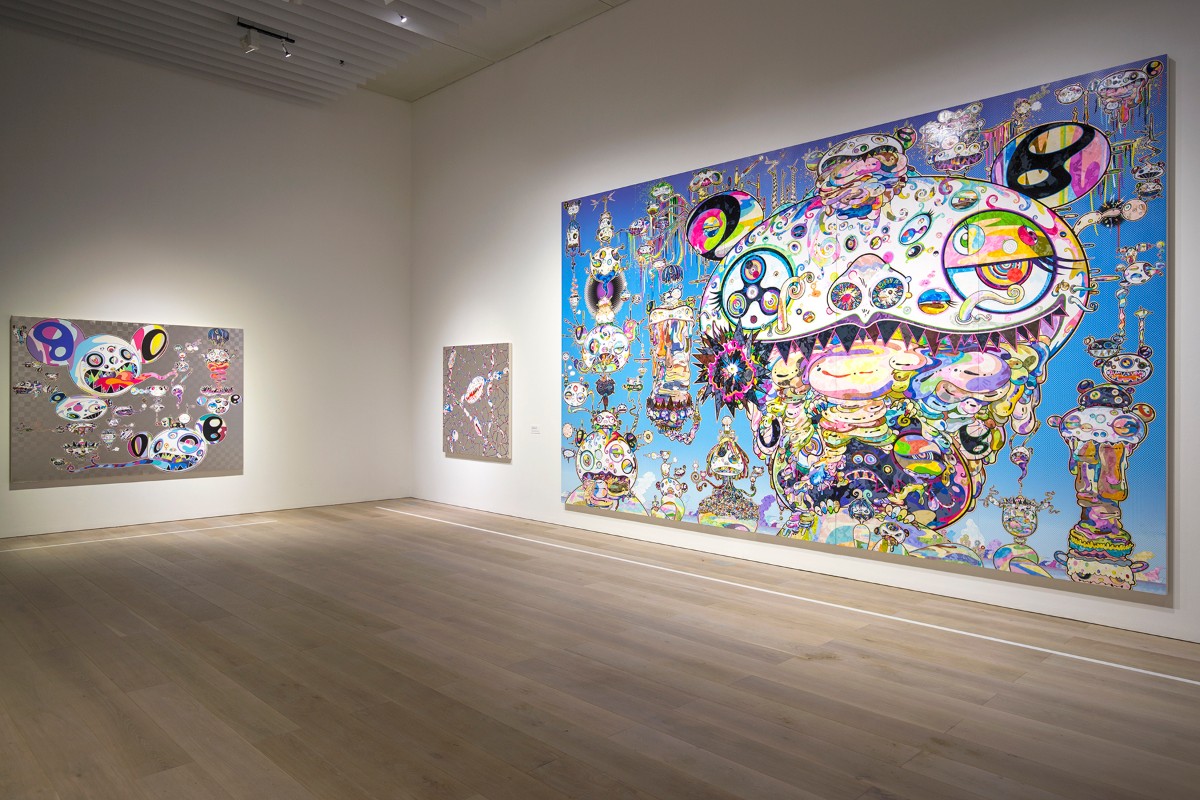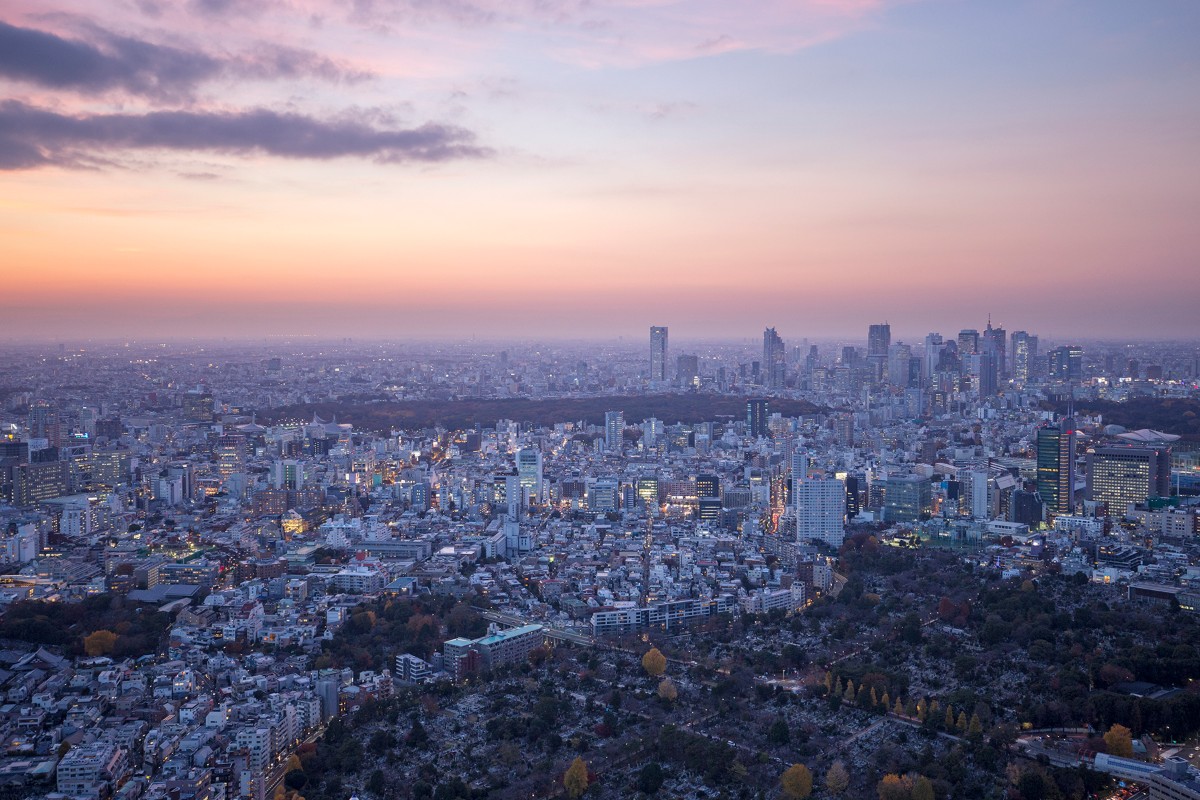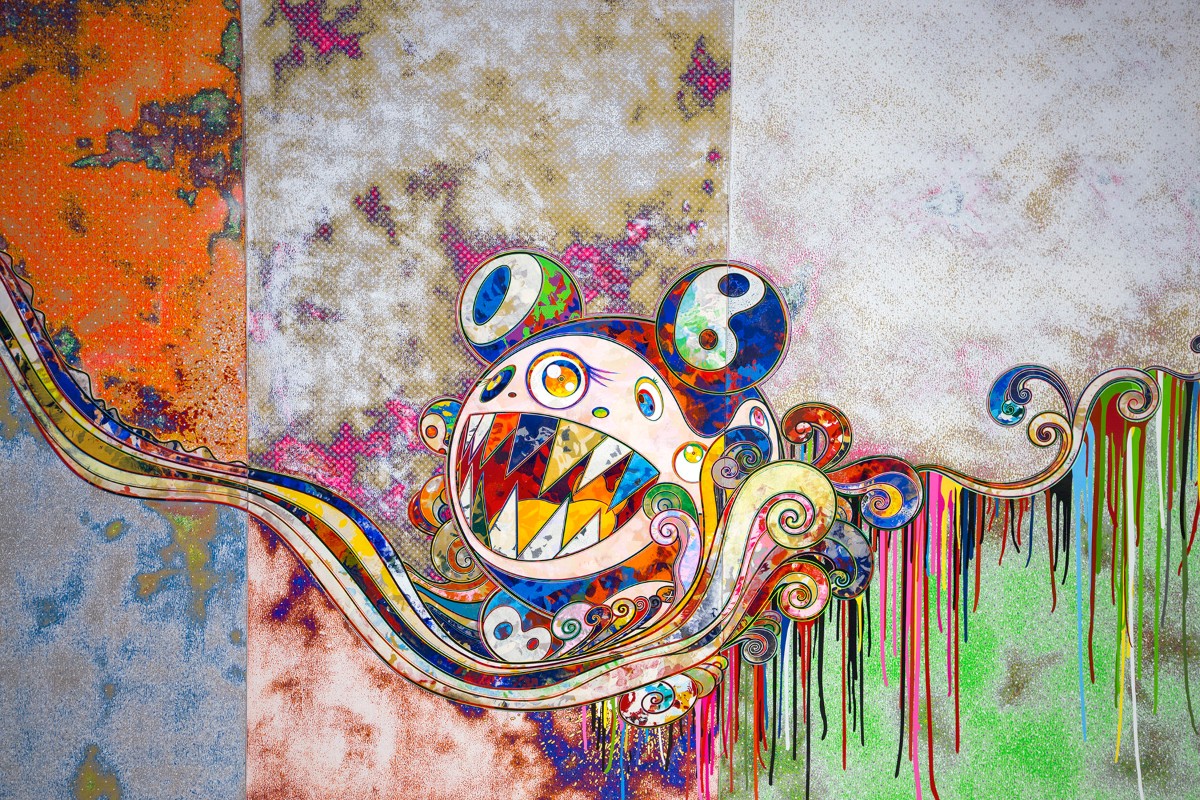Meeting Takashi Murakami at the opening reception of his “Inochi” exhibition at the Blum & Poe gallery in Los Angeles in 2004 was a special experience for me. He was a newly minted art superstar, just two years into his 13-year collaboration with Marc Jacobs on Louis Vuitton’s best-selling line ever. Many were likening him to Andy Warhol for successfully blurring the lines between art and commerce whilst liberally referencing pop culture; he would say he simply moved the lines. Four years prior, he curated the “Superflat” exhibition at the Museum of Contemporary Art in Los Angeles, which would come to be the moniker for the postmodern art movement he spearheaded and included globally acclaimed artists such as Yoshitomo Nara (also represented by Blum & Poe). It’s ironic (and fortunate) that what prompted him to move his sights abroad was his dissatisfaction with the art market in his native Japan because his work, and that of his compatriots is what whet many Westerners’ insatiable appetite for Japanese art. When I met him, I was starstruck, and had no idea that I would one day be calling his home mine.

When I visited Tokyo for the first time the following year, it was my interest in another artist that brought me to the Mori Tower. The scale and skill with which Mariko Mori created her photographic composites was impressive. When I learned that her father was a real estate tycoon whom she had convinced to place a world-class art museum atop the centerpiece of his innovatively designed new urban centre, Roppongi Hills, I had to go. I remember there was an exhibition on urban planning at the time, comparing the population growth and forecast for the world’s largest cities. That was when I learned what an amalgamated population was. It’s also when I came across some striking postcards with stylized illustrations of the Mori Tower’s construction by Akira Yamaguchi in the gift shop (you may not remember him as the bellboy in “Lost in Translation”). The flat, yet intricately detailed work reminded me of Murakami’s own, I bought one of everything, and wished to someday see a Murakami exhibit at this venue. I love it when wishes are granted and nothing bad happens as a result of making them (that I know of anyway). The show has been up since Halloween, but tour leading around this time often takes me away from Tokyo in favor of the fiery autumn foliage. The exhibition is titled “The 500 Arhats” and features one of the largest paintings in history (300 m2), which Murakami originally made for Qatar as a token of gratitude for their prompt support after the tragedy of the 2011 earthquake and tsunami. After more than a decade of wild success, I am happy to see he has continued to astound, bringing us more visually awesome conceptual feasts, and conflating complex and seemingly disparate tropes onto a deceptively accessible and attractive two-dimensional plane.

Murakami’s exhibition will be at the Mori until March 6th, 2016. Tickets are ¥1,600/adult, hours are 10am-10pm every day, except Tuesday, when they close to the general public at 5pm; admission stops half an hour before closing. On a clear day or night, a trip up to the open sky deck is a must, it only costs an additional ¥200, and is one of the finest views in the city.


